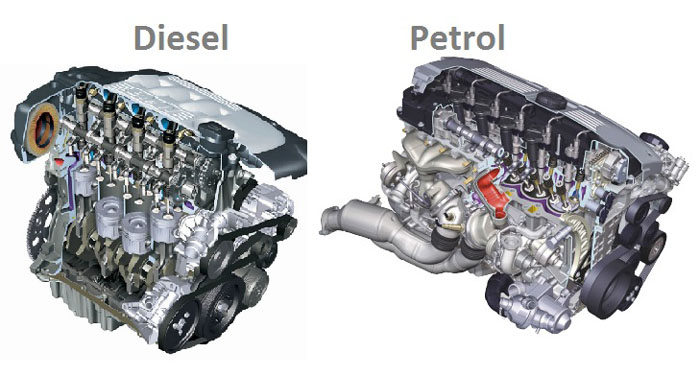
A Diesel or a Petrol car has been an evergreen subject. Putting it forward in the most generic manner possible, Diesel Cars are much more fuel efficient. At the same time, Diesel is a cheaper fuel compared to Petrol in India. Petrol vehicles with same or similar specifications are usually cheaper than their diesel counterparts. This means, if you are looking to get a new Swift and drive it around as a taxi clocking over 500 kms a month, you SHOULD go for the diesel variant. Simply because of the lower cost incurred in running it around.
But knowing this little is an insult to the automotive enthusiast in you. Which is why we at AutoZeal will try and explain to you the various fundamental differences between the two-one at a time. Before we delve deep, let’s go through the basics. A petrol engine is a Spark Ignition (SI) engine-meaning a spark ignites the air-fuel mixture. For a diesel engine, which is a compression ignition (CI) engine, the heat generated due to compression of the air fuel mixture produces the necessary combustion. One thing is clear-whichever way it ignites, the ignited air-fuel mixture pushes the piston downwards rotating the crankshaft in turn. However, the fundamental difference in operation results in extremely different results-in terms of power, torque, fuel consumption, weight of vehicle, top speed. And some of the factors which guide the operating principles include the calorific value of the fuel, formation of the air fuel mixture, flame propagation inside the cylinder, engine temperature among others. To clearly understand why a petrol and a diesel engine are different to each other, we need to ask the following questions!
- What is the difference between Otto Cycle and Diesel Cycle?
- Fuel: Why diesel and petrol as fuels are fundamentally different?
- Intake and metering of Air-Fuel Mixture!
- How does flame propagation affect the operation?
- Power: How does power translate into speed and torque for the 2 variants?
- Why and how does weight of the engine play a role?
- Emissions: What do they snort out?
- Knocking!
- Applications!
- Modern advancements in diesel and petrol engines!
In the coming weeks, we will be elaborating on each of these.
Leave a comment